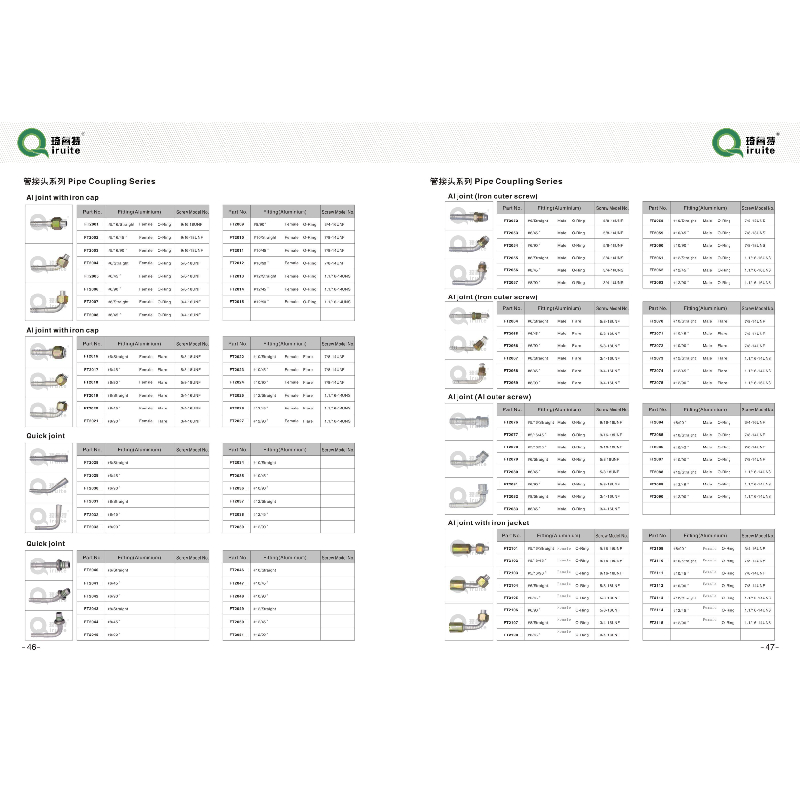Exploring the Role of AC Pipes in Automotive Air Conditioning Systems
Understanding AC Pipe in Cars Importance, Functionality, and Maintenance
The air conditioning (AC) system in vehicles is a crucial component that ensures passenger comfort, especially during the hot summer months or in humid climates. At the heart of this system lies the AC pipe, an integral part that plays a vital role in transporting refrigerant throughout the AC system. In this article, we will explore the importance and functionality of AC pipes in cars, as well as provide insights into their maintenance and potential issues that may arise.
What is an AC Pipe?
AC pipes are specialized tubes designed to carry refrigerant, a fluid that absorbs and releases heat, between the various components of the car's air conditioning system. The AC system typically consists of several key components, including the compressor, condenser, evaporator, and expansion valve. Each of these parts works in tandem to cool the air that circulates within the vehicle cabin.
The AC pipes connect these components, allowing for the efficient flow of refrigerant. They are usually made from durable materials like aluminum or reinforced rubber that can withstand high pressure and temperature variations. The proper functioning of these pipes is critical to the overall performance of the AC system.
Importance of AC Pipes
1. Refrigerant Flow The primary role of AC pipes is to facilitate the movement of refrigerant. The compressor pressurizes the refrigerant, sending it through the high-pressure side of the system to the condenser. Here, it cools down and transforms into a liquid before moving to the expansion valve and eventually the evaporator, where it absorbs heat from the cabin air.
2. System Efficiency A well-functioning AC system relies on the effective transfer of refrigerant, which is dependent on the integrity of the AC pipes. Blockages, leaks, or ruptures in the pipes can lead to reduced cooling performance and increased strain on other components.
3. Safety and Comfort A malfunctioning AC system can lead to discomfort for passengers, especially in extreme weather conditions. Moreover, refrigerant leaks can pose safety hazards, as certain types of refrigerants are harmful to both human health and the environment.
Common Issues with AC Pipes
Despite their durability, AC pipes can experience several issues over time
ac pipe in car

- Leaks The most common problem associated with AC pipes is leakage. Over time, wear and tear, corrosion, or physical damage can result in small cracks or holes, allowing refrigerant to escape. This not only affects the cooling efficiency but also leads to increased operational costs as the system may need more refrigerant.
- Blockages Dirt, debris, or moisture can accumulate within the pipes, leading to blockages that prevent the refrigerant from flowing properly. This can cause reduced cooling performance and potential damage to the AC compressor.
- Wear and Tear The constant changes in pressure and temperature can lead to fatigue in the materials used for AC pipes. Regular inspections are necessary to identify any deterioration before it leads to a system failure.
Maintenance and Care
To ensure the longevity and efficiency of the AC pipes and the entire air conditioning system, regular maintenance is essential. Here are some tips for car owners
1. Regular Inspections Have a qualified mechanic inspect the AC system annually. This inspection should include checking for leaks in the pipes and ensuring that all components are functioning correctly.
2. Keep the System Clean Ensure that the condenser and evaporator are free from dirt and debris, as these can affect system performance and lead to water accumulation or corrosion.
3. Address Issues Promptly If you notice any signs of reduced cooling efficiency, unusual noises, or fluid leakage, consult a mechanic immediately. Early intervention can prevent more severe damage and costly repairs.
4. Use Quality Parts When replacing any AC components, including pipes, opt for high-quality parts that meet manufacturer specifications. This will enhance the reliability and lifespan of the AC system.
Conclusion
AC pipes may be an often-overlooked part of a car’s air conditioning system, but their importance cannot be understated. By facilitating the flow of refrigerant, they enable effective cooling, contributing to a comfortable driving experience. Regular maintenance and prompt attention to any issues will help ensure that your vehicle’s AC system operates efficiently, keeping you cool and safe on the road.
-
Ultimate Spiral Protection for Hoses & CablesNewsJun.26,2025
-
The Ultimate Quick-Connect Solutions for Every NeedNewsJun.26,2025
-
SAE J1401 Brake Hose: Reliable Choice for Safe BrakingNewsJun.26,2025
-
Reliable J2064 A/C Hoses for Real-World Cooling NeedsNewsJun.26,2025
-
Heavy-Duty Sewer Jetting Hoses Built to LastNewsJun.26,2025
-
Fix Power Steering Tube Leaks Fast – Durable & Affordable SolutionNewsJun.26,2025

